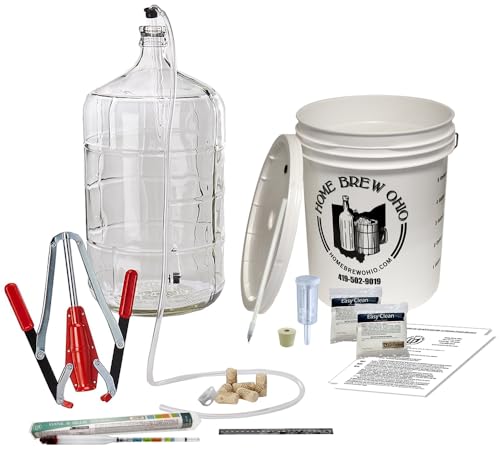I made a batch of peach mango wine and a batch of pear. Both fermented to dry (.992 for both actually). In both cases I added pectic enzyme before starting fermentation. With the pear I gave it about 8 hours before pitching my yeast and with the peach mango a little less.
So the peach mango I racked into a carboy 19 days ago, and the pear 3 days ago. The pear (on the left) is almost completely clear, but the peach mango isn't much closer than it was the day I racked it.
Is this pretty normal? I'm not really worried so early in the game but the stark difference is interesting to me.
Btw I added some banana to the peach and used part brown sugar and part white to ferment which is why it's so brown.
So the peach mango I racked into a carboy 19 days ago, and the pear 3 days ago. The pear (on the left) is almost completely clear, but the peach mango isn't much closer than it was the day I racked it.
Is this pretty normal? I'm not really worried so early in the game but the stark difference is interesting to me.
Btw I added some banana to the peach and used part brown sugar and part white to ferment which is why it's so brown.












































